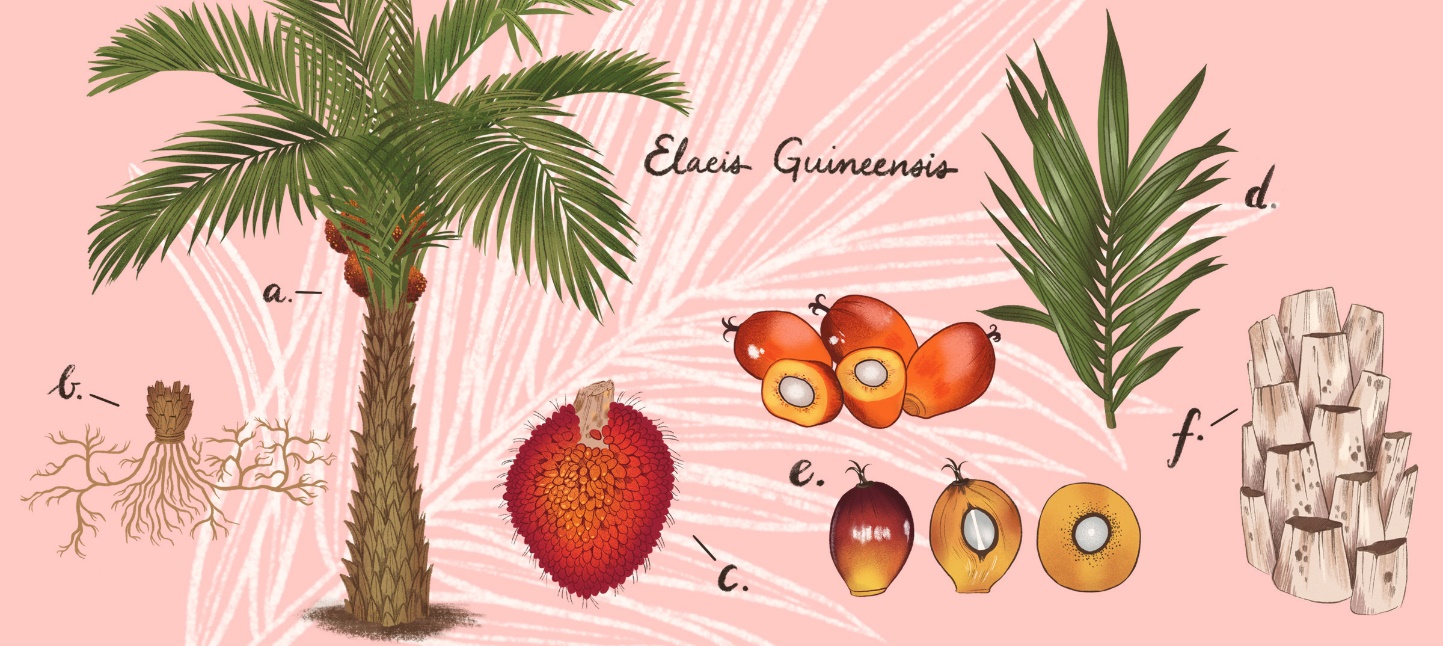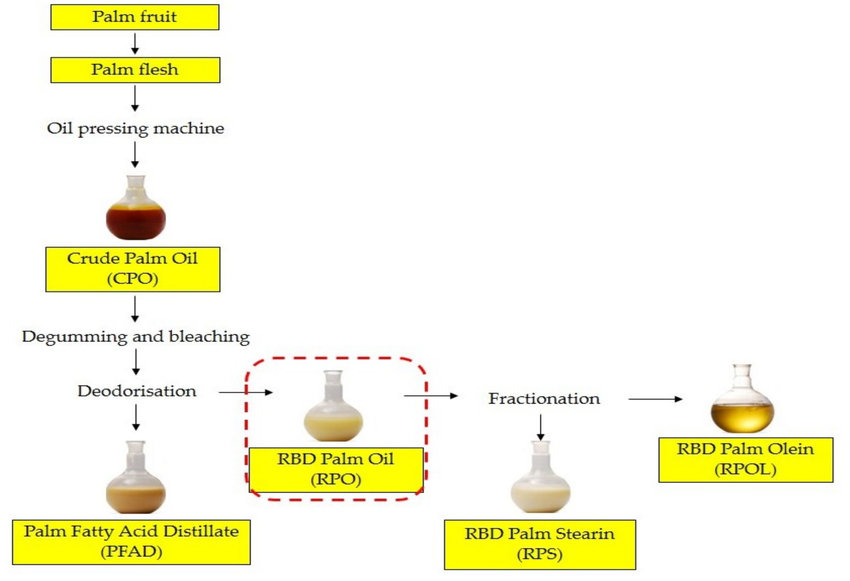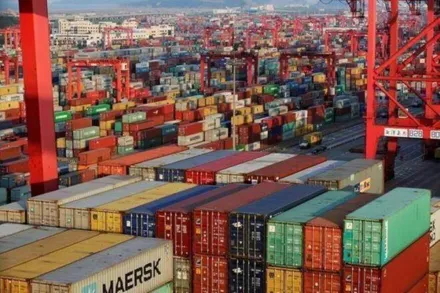- Courses
- GS Full Course 1 Year
- GS Full Course 2 Year
- GS Full Course 3 Year
- GS Full Course Till Selection
- Answer Alpha: Mains 2025 Mentorship
- MEP (Mains Enrichment Programme) Data, Facts
- Essay Target – 150+ Marks
- Online Program
- GS Recorded Course
- Polity
- Geography
- Economy
- Ancient, Medieval and Art & Culture AMAC
- Modern India, Post Independence & World History
- Environment
- Governance
- Science & Technology
- International Relations and Internal Security
- Disaster Management
- Ethics
- NCERT Current Affairs
- Indian Society and Social Issue
- NCERT- Science and Technology
- NCERT - Geography
- NCERT - Ancient History
- NCERT- World History
- NCERT Modern History
- CSAT
- 5 LAYERED ARJUNA Mentorship
- Public Administration Optional
- ABOUT US
- OUR TOPPERS
- TEST SERIES
- FREE STUDY MATERIAL
- VIDEOS
- CONTACT US
Rise in RBD Palm Oil Import
Rise in RBD Palm Oil Import

Rise in RBD Palm Oil Import
Why in News?
Recently, a sharp rise in the import of refined, bleached and deodorized (RBD) palm oil is hurting the domestic oil refining industry, says Solvent Extractor’s Association (SEA) of India.
About Palm Oil:
- Palm oil is also known as palm fruit oil.
- Palm oil is produced from the fruit of the oil palm tree (Scientific name: Elaeis guineensis).
- It is the most widely produced vegetable oil in the world and have surpassed soybean oil.
- It is physically refined without the use of chemical solvents, thereby reducing the risk of residue contamination.
- It has high nutritional value, as virgin palm oil is rich in carotenoids (pro Vitamin A), tocotrienols and tocopherols (Vitamin E).
- Also, Palm oil have many health benefits, since it is a vegetable oil not an animal or dairy product, therefore it does not contain cholesterol. It also does not contain trans fatty acids.
- Oil palm is the only fruit that can give two types of oil-palm oil and palm kernel oil.
What is RBD Palm Oil?
RBD Palm oil is the oil that is extracted from the crushed palm fruit and refined, bleached and deodorized.
Reasons for the rise in imports of RBD palm oil
- Import duty difference of only 7.5% between CPO (crude palm oil) and refined oil, encouraging the import of refined oil as compared to the CPO.
- Malaysian and Indonesian exporters of RBD palm oil enjoy advantage (taxes) of $60 over CPO and hence they discount palm oil benefiting their refiners.
Consequences of the rise in imports of RBD palm oil
- Indian refining industries are utilized lower than their capacities (30% now versus 60-70% in 2020), as demand is getting fulfilled through imports.
- The refining industry will be suffering losses of Rs. 6000 per tonne on importing crude palm oil and converting it into refined palm oil.
- PM’s vision of atmanirbhar within the country is threatened due to rising imports.
- Indian refining industry may turn into packers rather than producers and refiners, if the import trends remain same.
- Compromising heavy investments made in the domestic refining sector for capacity enhancement and possibility of rising Non-Performing Assets (NPAs) in the sector.
- After a long time, domestic oilseeds have started selling above minimum support price (MSP) and improved farm incomes. Continued rising imports of RBD might reverse these gains.
Concerns Regarding Palm Oil:
- The oil palm is a water-guzzling, monoculture crop with a long gestation period, which is unsuitable for small farmers and the land productivity for palm oil is higher than for oilseeds, which create apprehension for more land to be given for oil palm cultivation.
- It could also detach tribespeople from their identity linked with the community ownership of land.
- The palm is an invasive species that is not a natural forest product of north-eastern India and its impact on the biodiversity as well as on soil conditions has to be analysed even if it is grown in non-forest areas.
[Invasive species are non-native species that spread and interfere in a new ecosystem by posing a serious threat to the native biodiversity.] - Oil palm requires 300 litres of water per tree per day, as well as high Pesticide use in areas where it is not a native crop, leading to consumer health concerns as well.
- The most critical issue in the cultivation of oil palm has been the inability of farmers to realise a remunerative price of fresh fruit bunches (FFBs).
- FFBs (Fresh Fruit Bunches) of oil palm are highly perishable and need to be processed within 24 hours of harvest.
Applications of Palm Oil:
- Since its introduction, oil palm is now a leading agricultural crop. Increased planting, cultivation and refinement have led to the introduction of a wide range of processed palm oil products.
- They can be used for frying media and for making shortenings, soap, oleo chemicals and other products.
- It is used as cooking oil, to make margarine and is a component of many processed foods.
- Palm oil is one of the few vegetable oils relatively high in saturated fats (such as coconut oil) and thus semi-solid at room temperature.
Way Forward
Restricted List: The government can place again the import of RBD palm oil and refined palm oil under restricted list with immediate effect. Increasing refined duty from current 12.5% to 20% without any change in crude palm oil duty will also be beneficial.
Additional Information:
National Mission on Edible Oils – Oil Palm (NMEO-OP)
- It is a Centrally Sponsored Scheme.
- It focuses on the Northeast region and the Andaman and Nicobar Islands.
- It aims to increase oil palm land by an additional 6.5 lakh hectares by 2025-26.
- Also, it aims to grow production of crude palm oil to 11.2 lakh tonnes by 2025-26 and up to 28 lakh tonnes by 2029-30.
- This scheme will include the current National Food Security Mission-Oil Palm programme.
- There are 2 major focus areas of the Scheme:
- The oil palm farmers produce Fresh Fruit Bunches (FFBs) from which oil is extracted by the industry.
- Presently the prices of these FFBs are linked to the international Crude Palm Oil (CPO) prices fluctuations.
- For the first time, the Government of India will give price assurance to the oil palm farmers for the FFBs in the form of the Viability Price (VP).




